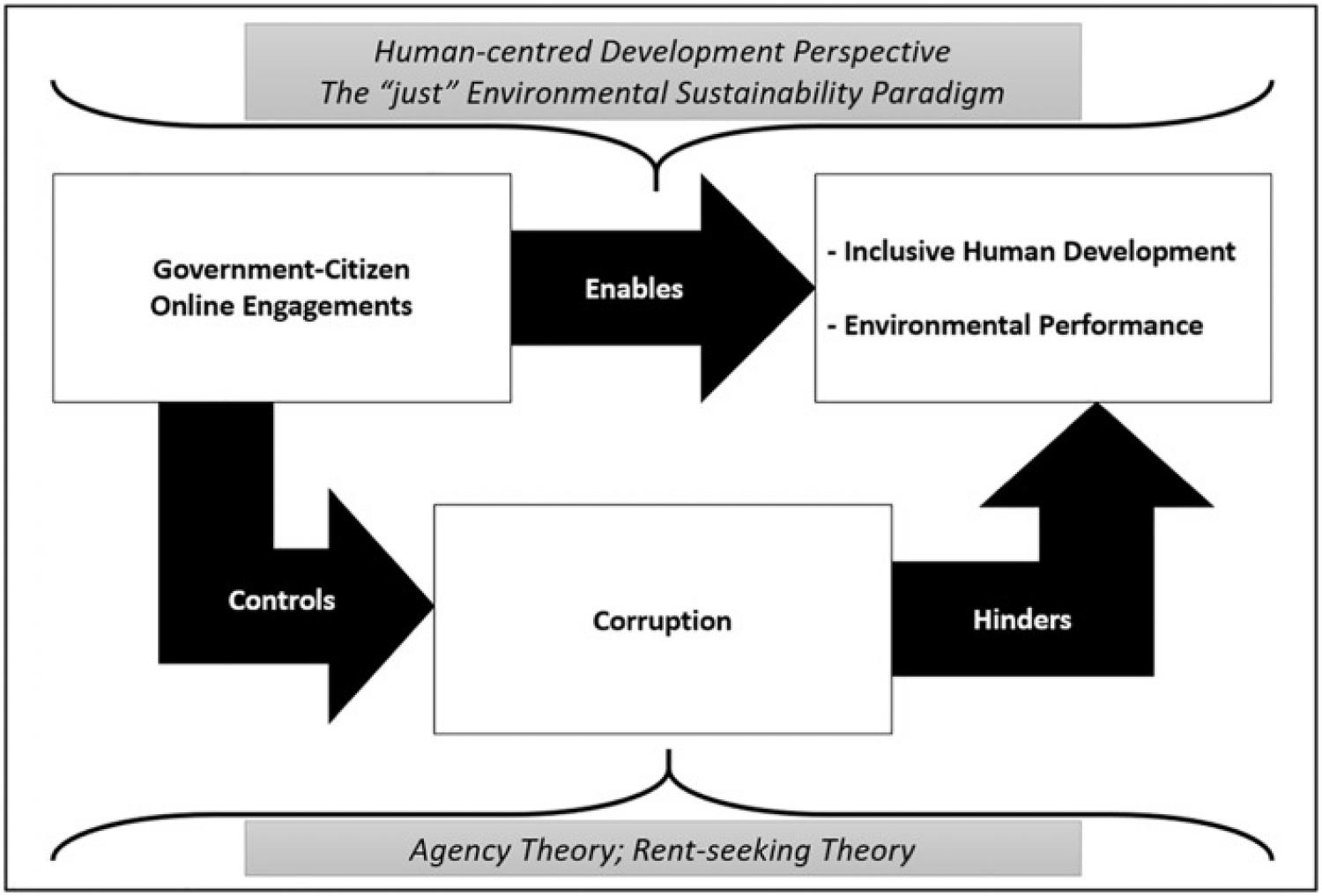
Elsevier, Government Information Quarterly, Volume 38, October 2021
Against a backdrop of scant scholarly evidence regarding the effectiveness of E-Participation (EP) in enabling broader macro-level outcomes, we posit that electronic participation use by governments in engaging citizens leads to a more inclusive human development and superior environmental performance, directly as well as indirectly through corruption control. Towards this, we employ human-centered development perspective, the “just” environmental sustainability paradigm, agency theory, and rent-seeking theory to draw linkages between EP, Corruption Control, Inclusive Human Development, and Environmental Performance. Using publicly available archival data for 132 countries, we carry out an empirical analysis and establish that higher EP is positively associated with Inclusive Human Development and subsequently Environmental Performance. Specifically, our results substantiate the role of Corruption Control as an intervening mechanism via which EP's impact on Environmental Performance assumes effectiveness. Our findings contribute to the theoretical discourse on EP by extending the analysis of EP impacts beyond its immediate outcomes (such as Corruption Control) to include higher-order macro-level impacts (such as Inclusive Human Development and Environmental Performance). In doing so, we uncover fresh evidence of EP's effectiveness in enabling Inclusive Human Development and Environmental Performance on a global scale. Based on these observations, we draw implications for theory and practice, and avenues for future research.
